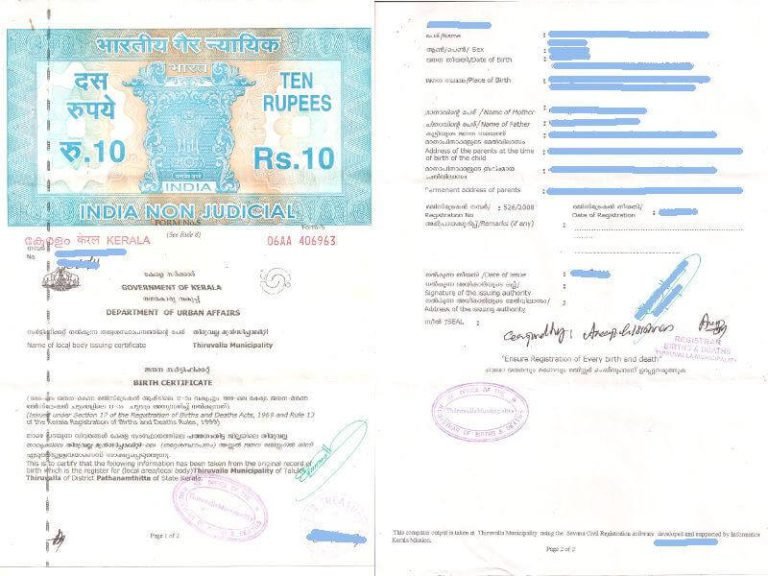Company Registration
Company registration refers to the legal process of incorporating a new company as a separate legal entity, recognized by law and distinct from its owners or shareholders. This process involves filing the necessary documents and information with the government, and obtaining various licenses and permits required to operate the business. Company registration provides several benefits to the business, includin
Easy Process and Documentation
Required Paperwork
- Government of the Central/State issued photo ID proof.
- Address proof issued from Central /state government.
- Passport-size colour photograph.
- Ration card (BPL) or National Food Security Card. (if applicable)
- Signed self-declaration from applicant/head of family.
Process, Service Charges, Time duration
- When you send us your paperwork, our experienced staff will review your paperwork with local government officials to determine the service’s cost, feasibility, and completion date. After a quote has been given, it remains fixed. Location affects project duration and cost. Send us your documents and specific requirements to get a price and turnaround estimate.
- On an average Procurement takes four to six weeks.
2000+ locations Served
Happy Clients 50000+
Averge Google Rating 4.9
India's Most Trusted Legal Documentation Portal
WHAT IS THE DIFFERENCE BETWEEN COMPANY REGISTRATION AND INCORPORATION?
The act of establishing a new business entity as a corporation or company is known as incorporation (a corporation being a legal entity that is effectively recognised as a person under the law). The company could be a business, a non-profit organisation, a new venture, or a micro, small, or medium-sized enterprise. The Companies Act, 1956, 2013 and any other linked Acts, Bills, and Regulations are what the Ministry of Corporate Affairs (MCA) uses to regulate corporate affairs in India. Additionally, MCA protects investors and provides a wide variety of vital services to stakeholders. Administration of the Companies Act 2013, the Companies Act 1956, the Limited Liability Partnership Act, 2008, and other allied Acts, as well as the rules and regulations framed there-under, are the primary responsibilities of the Ministry. This is done primarily for the purpose of regulating the functioning of the corporate sector in accordance with the law.
WHY USE LEGALDOCS?
- The most affordable prices, with an immediate start date.
- You FOCUS on business growth, We will do the rest for you.
- To get started, please complete this brief registration form.
- Expert consultation from members of the relevant industry.
THE ADVANTAGES OF COMPANY REGISTRATION/INCORPORATION
- Identification and recognition under the law for the company
- A Wide Variety of Tax Breaks
- Get financial backing or investment for your company.
- Your personal liability is restricted to a certain extent.
- improved trust in the brand as well as the image of the brand overall
TIMELINE
Consultations and documentation are provided at no cost.
Our Professional team handle your queries. Our consultation is offered at no cost whatsoever. I assist you in reaching a decision regarding the kind of business entity that should be incorporated, whether it be a private limited company, a limited liability partnership, or a one-person company.
Necessary Behavior on your Part
You are required to complete out the draught, make a payment, and then submit the documents to LegalDocs.
Taking Action, Legaldocs
After the documents have been uploaded, we will initiate the incorporation procedure in its entirety, step by step.
Digital Signature Certificate
In place of a traditional signature, a digital signature certificate, abbreviated as DSC and also known as DSC, is used to sign documents digitally. The DSC is required in order to incorporate. E-KYC for DSC can be achieved either by submitting a set of documents or by using Aadhaar. It is required that all company directors and partners hold a DSC.
Necessary Behavior on your Part
Throughout the DSC process, you are required to divulge the OTP for the e-KYC.
Taking Action, Legaldocs
After the documents have been uploaded, we will initiate the incorporation procedure in its entirety, step by step.
Director Identification Number
Each person who serves as a director in a legally constituted corporation is given a Director Identification Number (DIN). It is impossible to incorporate without a DIN.
Action Required through you
You may now take it easy
Action By Legaldocs
You may rest certain that we will handle everything efficiently.
Name Approval
By submitting an RUN form, you may begin the Name Approval or Name Reservation procedure, which will guarantee the use of a really unique name for your (Reserve Unique Name)
Action Required with the aid of using you
Put your feet up and relax; just in case your proposed names aren’t accepted, you’ll have to come up with some alternatives.
Action By Legaldocs
All steps of the Name Reservation Process will be handled by us.
MOA, AOA and Incorporation (MOA AOA will now no longer be relevant in case of LLP)
Upon a successful name reservation, we will begin the process of creating a Memorandum of Association, Articles of Association, and Incorporation.
Action Required through you
Drafts and affidavits need to be signed when needed.
Action By Legaldocs
After the Name has been accepted, we will proceed with forming the company and drafting the MOA and AOA.
WHAT ARE DIFFERENT TYPE REGISTRATION/INCORPORATION?
Different types
| Limited Liability Partnership | Private Limited Company | One Person Company |
| 4000 (Actual government fees) | 4500 (Govt Fees as of Actuals) | 4250 (Actual government fees) |
| LLPs are a great way to protect your personal assets since they are flexible and have fewer compliances. LLPs are also eligible for 100% FDI in Indian markets. | Venture capital is the usual way for new and growing businesses to get funding, and only private limited companies can get it. | Better credit rating, Single owner, seamless tax advantages, and simple financing alternatives from venture capital firms |
REQUIRED DOCUMENTS FOR REGISTRATION/INCORPORATION
Package Includes
| Private Limited Company | Limited Liability Partnership | One Person Company |
| Certificate of Digital Signature (DSC) 2 | Certificate of Digital Signature (DSC) 2 | Certificate of Digital Signature (DSC) 1 |
| 2-DIN (Director Identification Number) | 2-DIN (Director Identification Number) | 2-DIN (Director Identification Number) |
| Company Name Approval By Ministry | Company Name Approval By Ministry | Company Name Approval By Ministry |
| Memorandum of association (MoA) & | LLP agreement | Memorandum of association (MoA) & |
| Articles of association(AoA) | Registration Certificate | Articles of association(AoA) |
| Registration Certificate | Permanent Account Number (PAN) | Registration Certificate |
| Permanent Account Number (PAN) | Tax Account Number (TAN) | Permanent Account Number (PAN) |
| Tax Account Number (TAN) | Tax Account Number (TAN) |
Note: It is required under the Companies Act, 2013 that the company first confirm the availability of its proposed name and that it does not contain any words that are illegal in the context of a business name.
Additional Read: Documents Required for Company Registration
COMPANY INCORPORATION FAQS
Here are the various types of companies you can register in India:
One Person Company (OPC)
Private Limited Company
Public Limited Company
Limited Liability Partnership (LLP)
Non-Profit Organizations (Sec. 25 Companies)
With the introduction of the “One Person Company” idea in the Companies Act of 2013, a new business vehicle has been created. For a private limited company to be formed under the former Companies Act, 1956, there needed to be at least two directors and shareholders. A single individual will serve as both a Director and a shareholder in OPC. Such a business entity would typically be organized as a Private Limited Company.
In order to qualify as a Private Limited Company, there must be at least two shareholders and two Directors. A Private Limited Company can have up to fifty members at most. Each shareholder contributes to the company’s total capital and acts as a partner. Every PLC should have its financials audited and its board of directors should hold periodic meetings. The words “Private Limited” are at the end of the name of such a business.
The Limited Liability Partnership Act of 2008 establishes the rules for LLCs. It’s a business setup that provides minimal responsibility to its shareholders while maintaining the adaptability of a partnership. In other words, it combines the advantages of both a corporation and a partnership, with the added benefit that no one partner will be held responsible for the actions of any other partner.













